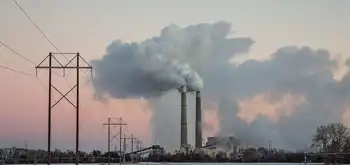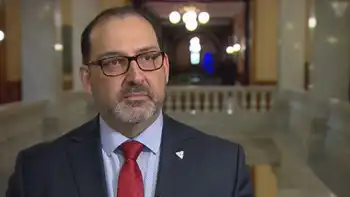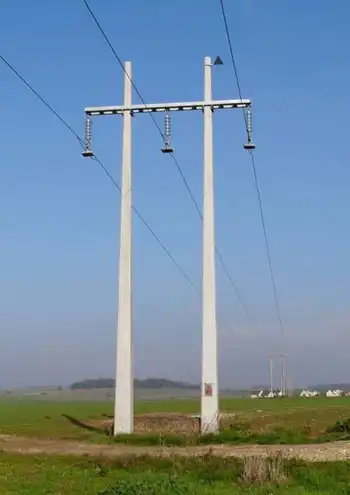House votes to bar EPA from GHG regulation
Nineteen Democrats joined in approving a bill that, were it to become law, would bar the Environmental Protection Agency from acting to limit emissions of carbon dioxide and other greenhouse gases that the agency has declared a threat to human health and the environment.
The measure would also nullify a 2007 Supreme Court ruling that gave the agency the authority to issue regulations to curb those emissions.
The bill stands little chance of becoming law because a similar measure voted on in the Senate came up 10 votes short of the 60 votes needed to avert a filibuster. President Obama threatened to veto any measure that would hinder the administrationÂ’s efforts to restrict emissions that scientists say are warming the atmosphere and leading to potentially devastating changes in the global climate.
Representative Fred Upton, Republican of Michigan and chairman of the House Energy and Commerce Committee, called the vote a victory for American families and jobs as well as a message to the White House that its regulatory agenda was unpopular with many voters.
“Our thoughtful, bipartisan solution reins in an EPA gone wild whose bureaucrats are oblivious to the nation’s economic woes and soaring unemployment,” said Mr. Upton, who co-sponsored the bill with Representative Edward Whitfield, Republican of Kentucky.
The Senate defeated four amendments that would have permanently or temporarily prevented the environmental agency from policing greenhouse gas emissions, including one measure that was virtually identical to the House bill. That amendment, sponsored by Senators Mitch McConnell of Kentucky and James M. Inhofe of Oklahoma, both Republicans, drew four Democratic votes but remained well short of a filibuster-proof majority.
The votes leave Congress deadlocked for now on an issue that has stirred heated scientific, economic and political debate for years.
Republican leaders are pushing to attach similar anti-EPA measures to the current-year budget bill that is now being negotiated. If that fails, they will most likely try again on future spending bills.
The vote was in sharp contrast to action two years ago, when a Democratic-controlled House passed a comprehensive climate change and energy bill that would have created a nationwide trading system to rein in carbon dioxide emissions. That legislation died last year in the Senate.
The debate in the House has unfolded along familiar lines, with well-rehearsed arguments about the science of global warming and the effects of new environmental regulations on domestic energy prices and jobs.
Republicans said they were trying to stay the heavy hand of officials at the EPA who were imposing costly “job killing” regulations on business. Democrats argued that the Clean Air Act’s limits on air pollutants save tens of thousands of lives and prevent hundreds of thousands of illnesses every year, and that extending those rules to greenhouse gases would slow dangerous climate change.
Mr. Upton said that his bill would allow the EPA to continue to regulate most air pollutants, but that the Clean Air Act never envisioned limits on carbon dioxide, methane or other greenhouse gases produced by thousands of sources around the country.
Representative Ted Poe, Republican of Texas, took the argument further. “EPA is on a mission to destroy American industry,” he said in defending the bill. “When regulators, especially regulators at the EPA, go to work, they get in a big room and sit around a conference table drinking their lattes and say, ‘Who can we regulate today?’ because that’s what regulators do. Regulators regulate, all on the so-called premise of protecting us from ourselves.”
Representative Henry A. Waxman, Democrat of California, was a co-author of the 2009 climate bill and the most outspoken opponent of the Upton-Whitfield measure. He called the bill “a divisive, partisan measure that takes us in exactly the wrong direction.”
He said the bill had no chance of becoming law and was merely a time-consuming distraction from the urgent task of reducing fossil fuel use and developing clean-burning alternatives. “Americans want clean air to breathe and sensible limits on carbon pollution,” Mr. Waxman said.
Related News

N.B. Power hits pause on large new electricity customers during crypto review
FREDERICTON - N.B. Power says a freeze on servicing new, large-scale industrial customers in the province remains in place over concerns that the cryptocurrency sector's heavy electricity use could be more than the utility can handle.
The Higgs government quietly endorsed the moratorium in a cabinet order in March 2022 and ordered a review of how the sector might affect the reliable electricity supply.
The cabinet order, filed with the Energy and Utilities Board, said N.B. Power had "policy, technical and operational concerns about [its] capacity to service the anticipated additional load demand" from crypto mines.
It said the utility had received "several…





